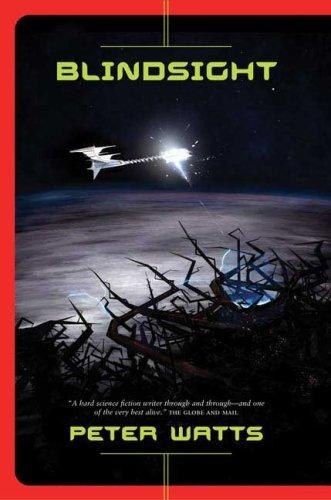384 pages
English language
Published June 24, 2006 by Doherty Associates, LLC, Tom.

384 pages
English language
Published June 24, 2006 by Doherty Associates, LLC, Tom.
Two months since the stars fell...
Two months of silence, while a world held its breath.
Now some half-derelict space probe, sparking fitfully past Neptune's orbit, hears a whisper from the edge of the solar system: a faint signal sweeping the cosmos like a lighthouse beam. Whatever's out there isn't talking to us. It's talking to some distant star, perhaps. Or perhaps to something closer, something en route.
So who do you send to force introductions with unknown and unknowable alien intellect that doesn't wish to be met?
You send a linguist with multiple personalities, her brain surgically partitioned into separate, sentient processing cores. You send a biologist so radically interfaced with machinery that he sees x-rays and tastes ultrasound. You send a pacifist warrior in the faint hope she won't be needed. You send a monster to command them all, an extinct hominid predator once called vampire, recalled from …
Two months since the stars fell...
Two months of silence, while a world held its breath.
Now some half-derelict space probe, sparking fitfully past Neptune's orbit, hears a whisper from the edge of the solar system: a faint signal sweeping the cosmos like a lighthouse beam. Whatever's out there isn't talking to us. It's talking to some distant star, perhaps. Or perhaps to something closer, something en route.
So who do you send to force introductions with unknown and unknowable alien intellect that doesn't wish to be met?
You send a linguist with multiple personalities, her brain surgically partitioned into separate, sentient processing cores. You send a biologist so radically interfaced with machinery that he sees x-rays and tastes ultrasound. You send a pacifist warrior in the faint hope she won't be needed. You send a monster to command them all, an extinct hominid predator once called vampire, recalled from the grave with the voodoo of recombinant genetics and the blood of sociopaths. And you send a synthesist—an informational topologist with half his mind gone—as an interface between here and there.
Pray they can be trusted with the fate of a world. They may be more alien than the thing they've been sent to find.